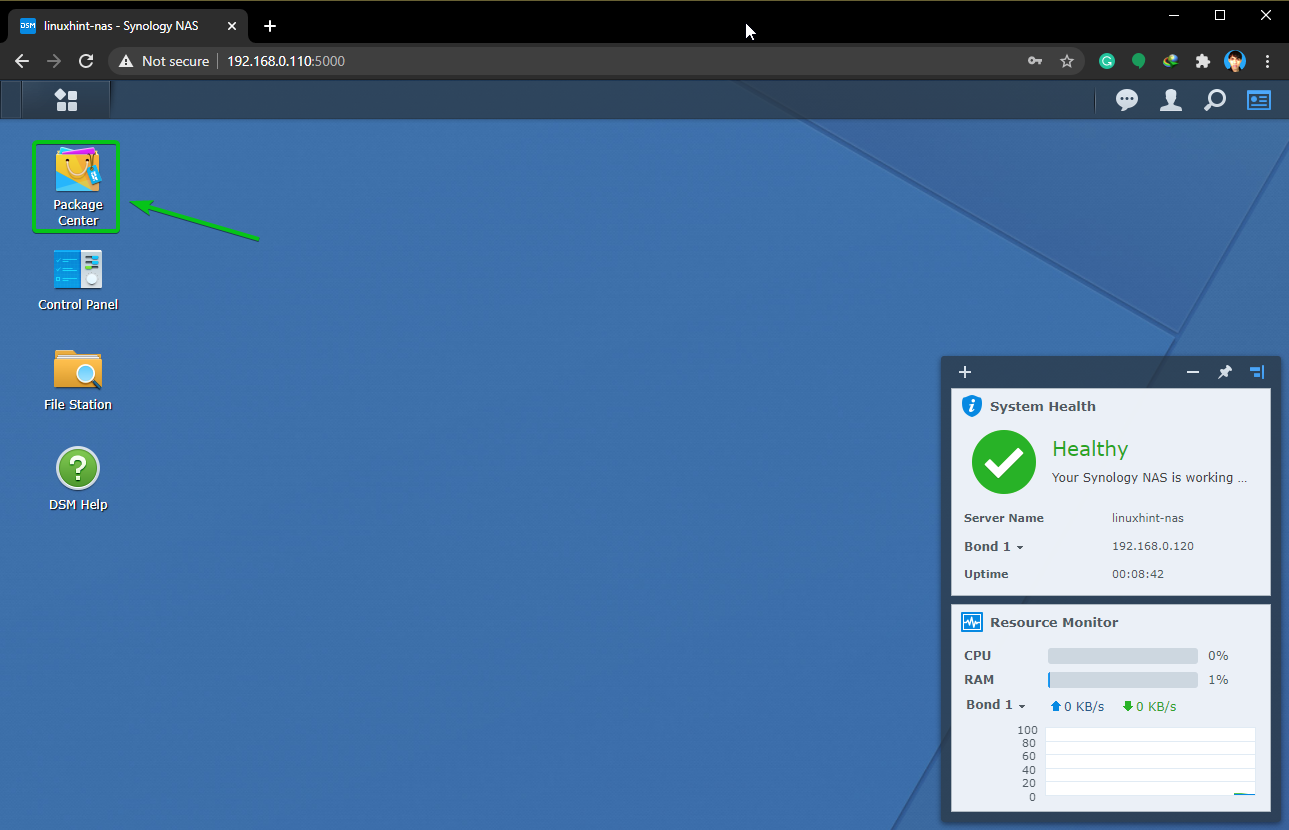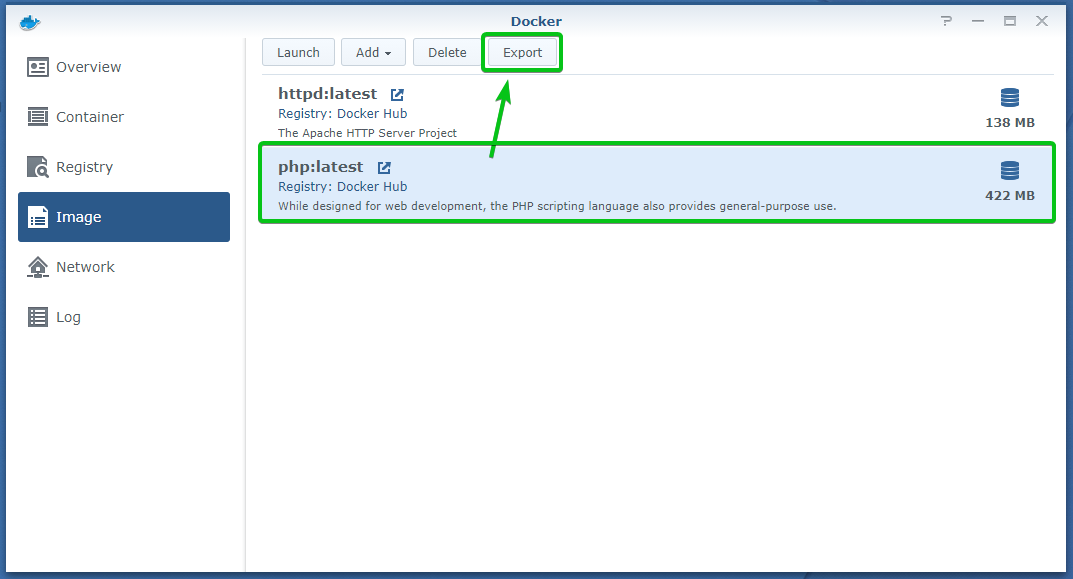

- SYNOLOGY DOCKER NETWORK HOST HOW TO
- SYNOLOGY DOCKER NETWORK HOST INSTALL
- SYNOLOGY DOCKER NETWORK HOST ZIP FILE
- SYNOLOGY DOCKER NETWORK HOST UPDATE
- SYNOLOGY DOCKER NETWORK HOST PASSWORD
Lastly, the image I used was downloaded from the Pi-Hole Block Page ProjectĪs of Pi-Hole 3.2 the separate Block Page project has been discontinued as custom pages have been rolled into Pi-Hole itself. This correctly shows all client IP’s so I’m very happy.Īs always, feel free to comment or ask for clarification. I hope you didn’t find this too daunting, it’s a few steps that makes Pi-Hole behave correctly on the Synology NAS running in a Docker container. htaccess file which can be downloaded here:Įxtract this into your /volume1/web folder.
SYNOLOGY DOCKER NETWORK HOST ZIP FILE
htaccess correctly.Īs requested in the comments below I have created a ZIP file containing the image and the.
SYNOLOGY DOCKER NETWORK HOST UPDATE
You can use whatever image you want but be sure to update the. This is now telling Apache that if you can’t find a file (will be most of the time due to Pi-Hole) then instead return the image blocked-by-pihole.svg.Īnd lastly place an image in the same place named blocked-by-pihole.svg. WebStation hosts files from /volume1/web so we need to create a new file named. We can fix this (and this is the reason for Apache). WebStation will process requests on port 80 however most of these will not be valid paths that the Synology is expected (due to Pi-Hole mis-directing these requests) and therefore will respond with 404 file not found errors. Next in the general settings make sure that we select Apache as the back-end server. In the WebStation application you should be able to see that Apache 2.4 is installed. You can use nginx if you prefer but this would require modifying the nf file and the possibility of this being overwritten or causing damage.
SYNOLOGY DOCKER NETWORK HOST INSTALL
Install Apache HTTP Server 2.4 using package manager. ApacheĪs we don’t want to manually modify any of the DSM files we need to run WebStation with the Apache web server instead of nginx. This will run on port 80 and will provide the blank areas where advert would have been seen. For this to respond we need to install WebStation. Pi-Hole will redirect blocked DNS names to the IP of the Synology NAS. Alternatively you can use the INTERFACE environment variable to be more specific.
SYNOLOGY DOCKER NETWORK HOST PASSWORD
Values in the 8000 range are pretty good.Īn optional 4th can be WEBPASSWORD which allows you to set the password used in the UI.ĭNSMASQ_LISTENING is required as the image runs dnsmasq listening to the en0 interface which does not exist when using host networking on the Synology NAS.

We do this so that Pi-Hole will be receiving the DNS requests direct and not relayed via Docker. Host networkingįirstly is that we are going to use the same network as the host. Once you have created your container from the latest tagged image there are a few steps in the docker wizard that are important. I originally used the Alpine version of this image due to it being smaller, however, as this is no longer maintained we will install the latest Debian version. Below is how I achieve this, enjoy.Īll information relating to the pi-hole docker image and extra configuration can be found on it’s home page. Whilst this worked I was never completely happy with this approach as I never want to modify system files as you can never be sure.Īfter a little work and a few updates to the Pi-Hole docker image I feel this is now possible without modification. When I first wrote about installing Pi-Hole inside Docker on my Synology NAS I came up with a solution that required a little modification to the standard DSM (see: Freeing up port 80 on Synology DSM).
SYNOLOGY DOCKER NETWORK HOST HOW TO
Update This post was updated in January 2018 and details how to get the Debian version of pihole-docker running as the Alpine version is no longer supported.

Update 2 I’ve created a new post which shows a different method, the one that I currently use.


 0 kommentar(er)
0 kommentar(er)
